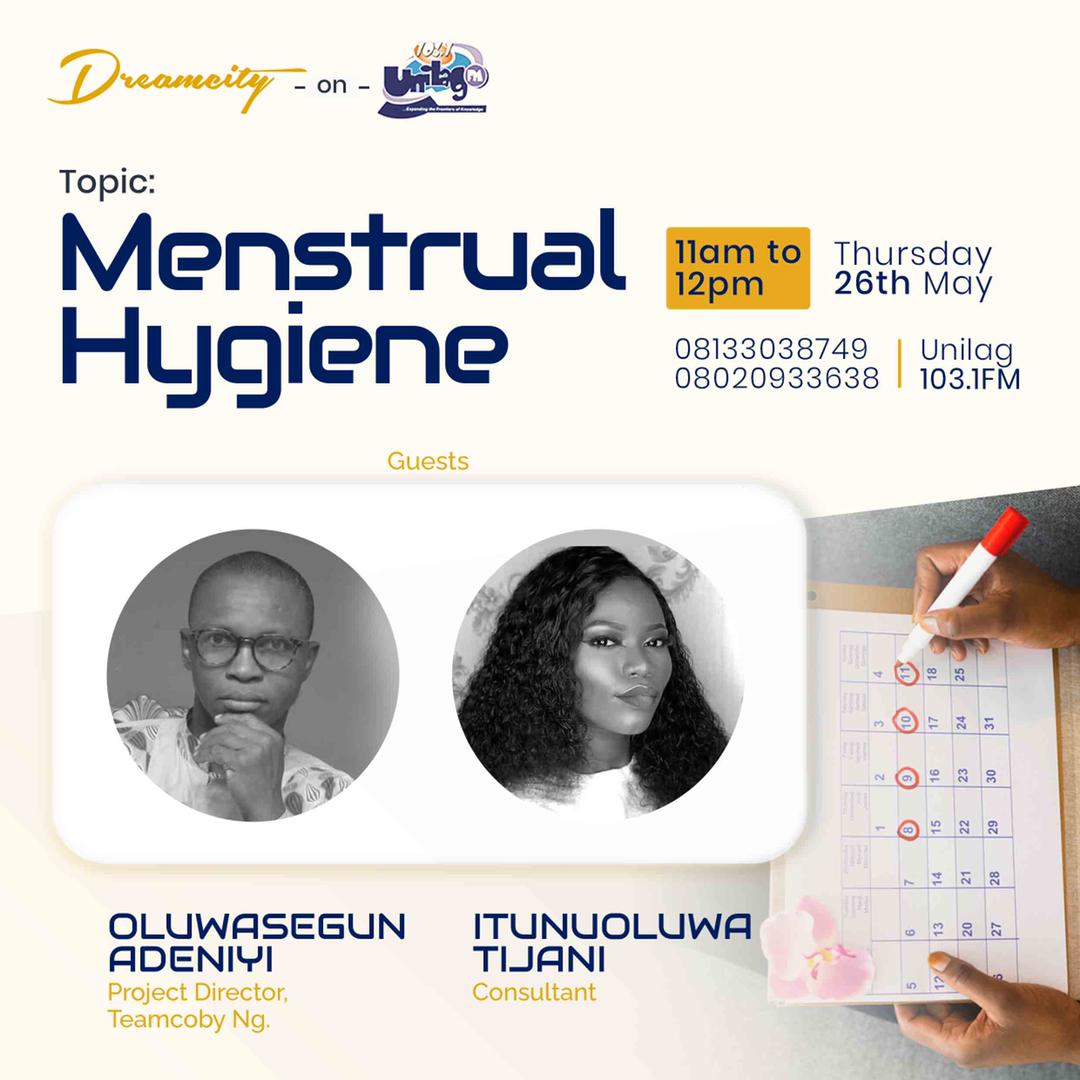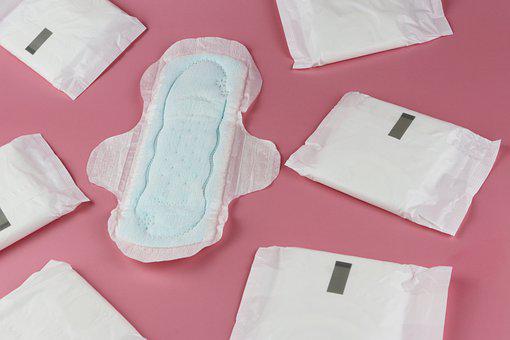It can be financially demanding for young girls and women to maintain menstrual hygiene during their cycle. In Nigeria, despite advocacy for menstrual hygiene the poverty and knowledge gap remain major challenge.
On this edition of Dreamcity with Tobore and Itunu, the project director of Team Coby who had been involved in advocacy for the girl child menstrual equality shared insights on best and cheapest menstrual hygiene practice.
One of the challenges in low-income areas is the knowledge gap is very obvious, so one of the things you will want to do is to bridge the knowledge gap. It could be through direct advocacy, social or behavioural change communication, so that at the end of the day you are able to get across to the community you really want to get across to and you will see the impact effectively.
Adeniyi has been involved with girls in communities and even schools in low-income communities enlightening the girl child about menstrual hygiene and education using advocacy and social and behavioural change communication to achieve his goals.
Various organizations have come up with reusable menstrual kits as solutions to the negative impacts of the disposable menstrual products.
There are several sustainable menstrual materials (reusable menstrual kits) that can be used by any woman globally. There is the menstrual cups, tappoons and reusable sanitary pads. Every woman will have to decide the one they want. Every female decides the one they prefer from these options which has no negative impact on the environment.
Both the reusable and the disposable are used the same way, the benefit is for the environment in terms of reducing pollution, disposable pads contain chemicals and toxins that will contaminate our water. A lot of people don’t have access to portable water, they drink directly from streams.
Another benefit is the economic friendliness. The woman can save as much as 70% of the cost expended on disposable menstrual kits if she adopts the reusable.
There is also the security aspect, there had been reports of people scavenging for used pads or ladies being kidnapped and forced to removed their pads which ended up becoming materials for rituals.
There is a barrier that comes with having a man talk about menstruation, knowledge gap is the major cause of girls being victims because fathers and mothers are not engaging their children. The angle where the father will take it from is quite different from the angle of the mother but both male and female can enlighten them to bring awareness about this menstrual hygiene.
In Nigeria, menstrual hygiene is gaining momentum, there are lots of organizations doing sensitization but the challenge has remained poverty. There’s a global concept known as period poverty or menstrual inequality which encompasses lack of knowledge, lack of products and lack of resources. The awareness is not enough, not just on part of students but also teachers, a lot of teachers don’t know and they end up stigmatizing girls.
Male students shame female students because of her menstrual stain. Menstrual hygiene, period poverty education and awareness should not just be restricted to the girls. If we run the advocacy across board, this challenge will reduce rapidly.
There is this cultural barrier where while trying to engage the girls, they won’t feel free in the presence of a boy is but when separated, they open up. So, they should be sensitized separately. For the boys, let them know of the peculiarities of their growth compared to ladies and then how they can help females especially their sisters by understanding, showing care and support. For the girls, they should be taught how to take care of themselves to avoid the shame.
Menstrual hygiene is an ongoing conversation while NGOs train and support with products there is also need for households to educate their children, both the boy child and girl child need to be aware. The girl child should know how to take care of themselves while the guys need to be against shaming. There should also be efforts to strike balance between the cultural and religious aspects which most educators are trying to avoid.







There are no comments